25 Different Types of Jasmine Flowers Across The World
These beautiful blooms are a treat for the eyes and a delight for your nose.
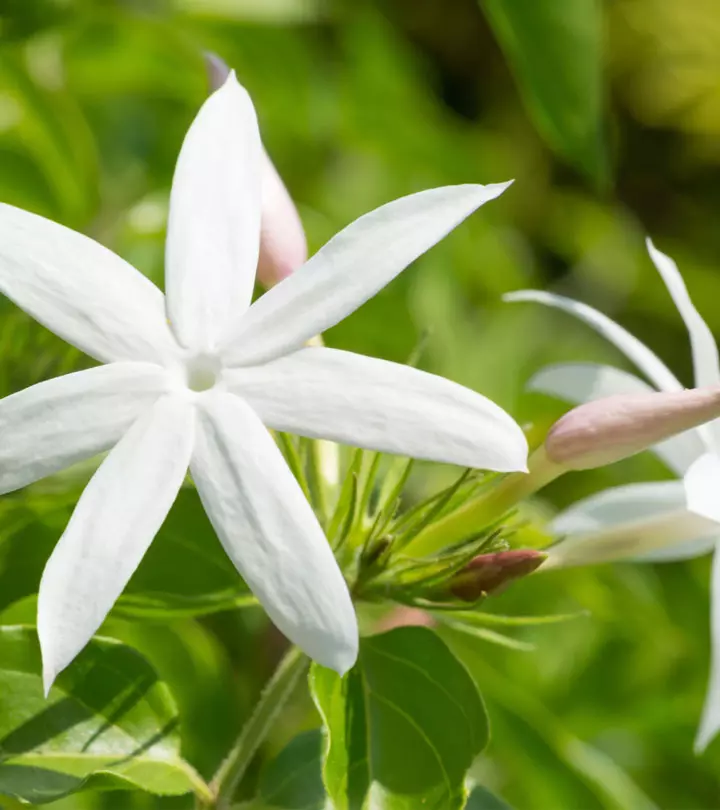
Image: ShutterStock
A genus of vine and shrubs, Jasmine is a much-loved flower that belongs to the family of Oleaceae. There are many different types of Jasmine in the world. About 200 species of Jasmine can be found across the globe. Jasmine is believed to be sacred in India, owing to its profound spiritual importance. You can find them in the Himalayas in the country.
The flower’s scent is very alluring and can relieve your stress. Among Hindus, it is believed that Jasmine symbolizes divine hope. Jasmine is the national flower of Pakistan, the Philippines, and Indonesia and symbolizes modesty, love, attachment, and sensuality. So, check out our list of some of the most beautiful Jasmine flowers below. Keep scrolling!
In This Article
1. Cestrum Nocturnum Night blooming:
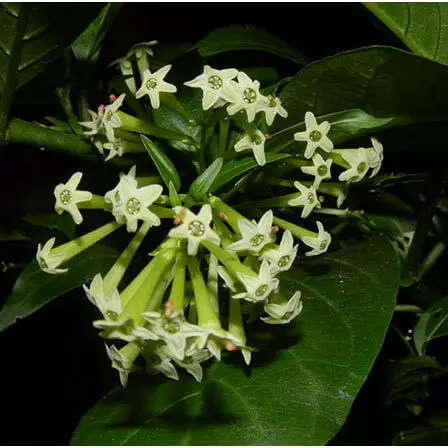
Night blooming Jasmine is a member of nightshade family. It is native to tropical America and West Indies. The shrub bearing this flower has simple, oval shaped leaves and clusters of small, greenish white flowers with lovely green foliage which appears every year from spring to fall. Night blooming jasmine grows favourably in sunlight and well-drained soil. The fragrance of this flower is very strong and is distinctly powerful at night. Its scent is powerful enough to produce severe allergic reaction in some individuals. It has glossy smooth leaves around 4 to 8 inches long. This jasmine is relatively easy to care for, but requires extra attention in cold climates.
Key Takeaways
- There are around 200 species of Jasmine flowers found globally.
- Jasmine is the national flower of Pakistan, the Philippines, and Indonesia.
- Different varieties bloom at night (Cestrum Nocturnum), from spring to fall (Candle Light), and in summer (Aimee Yoshida).
2. Gardenia Jasminoides Cape Jasmine:
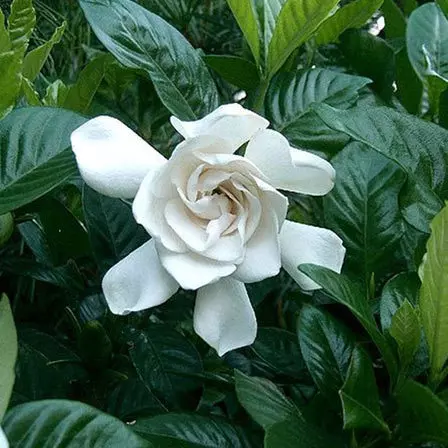
Cape jasmine is a beautiful, shrubby, evergreen houseplant which is extremely popular for its creamy, fragrant blooms. It is native to Japan, China and India. Its leaves are glossy, leathery and lustrous green in colour. Its petals are white in colour which turns yellow with age. The flower may be single, double or semi double. Like other jasmine, Cape jasmine also has a strong sweet scent which can make the entire room fragrant. This flower needs bright light and moderate temperature to grow properly.
3. Gardenia Jasminoides Candle Light:
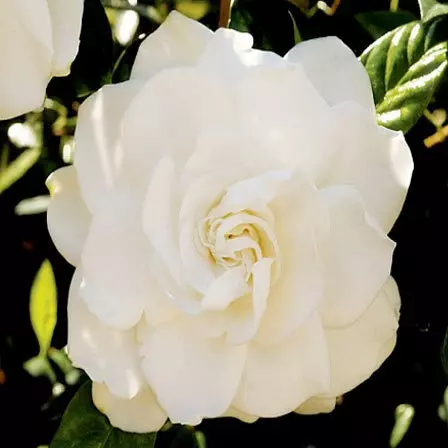
Candle light features large, showy double white flowers with attractive dark green foliage. The shrub grows to an average height of 5 feet and 4 feet in width. This large, waxy flower blooms from late spring to early fall. This jasmine needs good air circulation to discourage foliar diseasesi A disease where the plant leaves develop yellow or black spots due to fungi, insects, and pollution. .
4. Gardenia Jasminoides Aimee Yoshida:
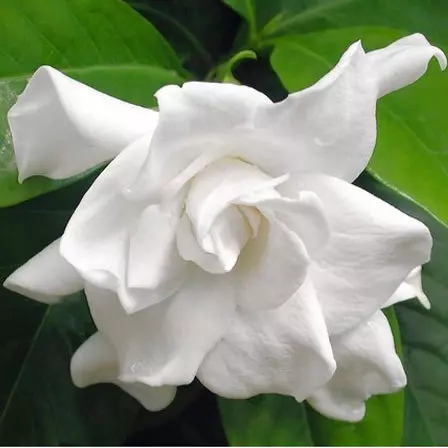
Aimee Yoshida is an extremely fragrant variety of jasmine which features showy white coloured flowers with deep green foliage. This flower prefers warm conditions with high humidity and rich acid soil. Regular watering and feeding is imperative to maintain its health. This jasmine works well as both a cut indoor flower and as a garden flower. It is native to China, Taiwan and Japan. It has an intoxicating smell and occurs yearly in late summer or fall.
5. Gardenia Jasminoides August Beauty:
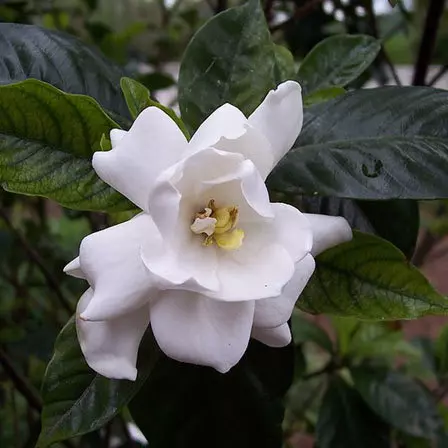
August Beauty is a prolific bloomer with velvety white petals and lustrous foliage. This medium sized evergreen shrub originates in China, Japan and Taiwan. These wonderfully fragrant blooms are borne on a rounded evergreen shrub which is useful as a low hedge or an accent flower for entryways. The flowers are white and turn creamy yellow with age. These doubled flowers have a pinwheel like appearance and waxy petals. They will bloom best in afternoon shade, moist, drained soil and good air circulation. Its powerful, sweet scent can make the entire room fragrant. It attracts visual attention and is resistant to drought, diseases, mildew and heat.
6. Gardenia Jasminoides Belmont:
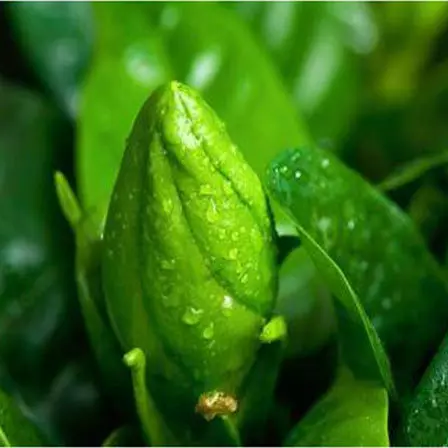
Belmont is best known for its lush foliage and exceptionally large leaves. Belmont is one of the best cultivars for indoor planting. It has semi double ivory flowers which, like, other jasmine flowers, turn yellow with time. It blooms yearly from late spring to summer and even fall.
7. Gardenia Jasminoides Chuck Hayes:
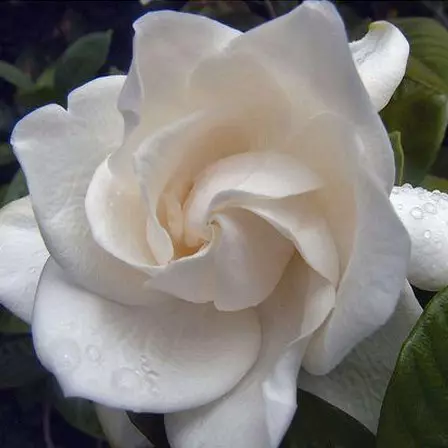
Chick Hayes is a heavily scented bloom which is banked by dense, healthy and glossy dark green foliage which remains evergreen on its shrub. Unlike other jasmines which bloom for 3 weeks, Chuck Hayes blooms for approximately 4 weeks in late spring to early spring. This double-flowered ivory white bloom begins unfurling in early summers as soon as the hot weather arrives. As for the maintenance, Chuck Hayes requires regular pruning to remove dead foliage and give proper shape to the plants.
8. Gardenia Jasminoides Daisy:
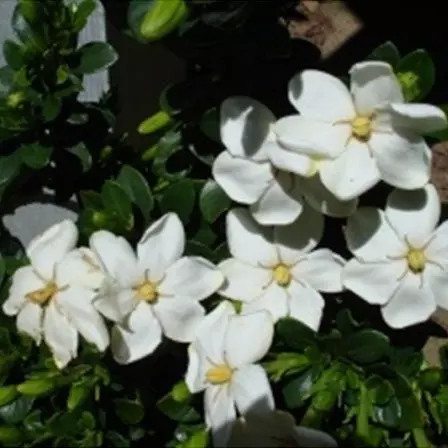
Jasminoides Daisy is a single, flat white flower with a golden center and small, stiff leaves. It has a low mounded shape with lush green foliage. The shrub bearing this flower grows to an average height of 3 to 4 feet, depending upon the environmental conditions and produces single white fragrant flowers. It grows best when planted in sandy or loamy soil in full sun. The foliage can turn pale green to yellow if the soil is alkaline. The flower turns yellow over time. This jasmine can be useful in the landscape and other outdoor living areas. It produces a strong fragrance, making it ideal for both garden planting and as a cut flower for indoors.
9. Gardenia Jasminoides Frostproof:
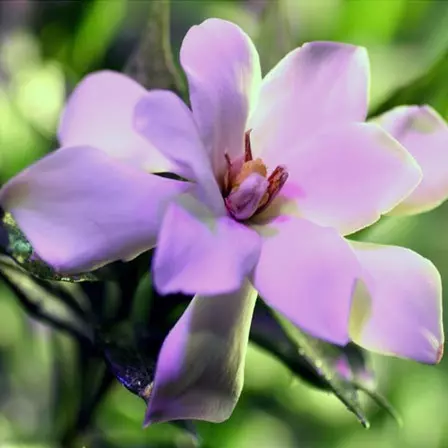
Frostproof jasmine is best known for its hardiness. This jasmine is aptly named Frostproof due to its high withstanding ability to late spring frost. The plant has a nice symmetrical upright form with nice foliage. It is an upright shrub which supports shiny, dark green leaves with white 2 to 3 inches flower. It opens in pairs on the branches and has a very pleasant fragrance. The flower can be maintained even at a 12 to 14 inch height in a pot and grows around 3 inches outdoors.
10. Gardenia Jasminoides ‘Daruma’:
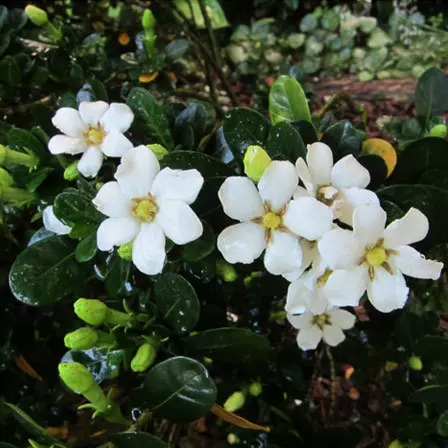
Daruma is a dwarf form of Kliem’s Hardy jasmine. Daruma bears a waxy, small single flower on glossy deep green foliage. It has small dense rounded leaves which are quite attractive. The shrub reaches an average height of 2.5 feet.
11. Gardenia Jasminoides ‘Kliem’s Hardy:
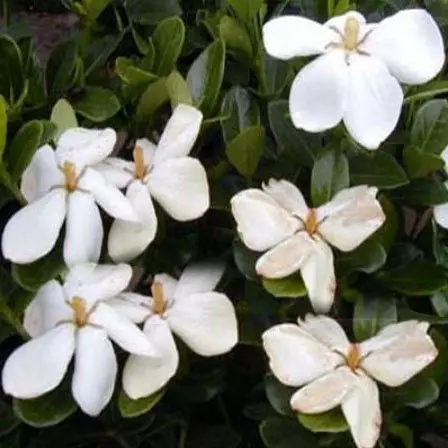
Kliem’s Hardy is a small evergreen shrub that originates from China. It appears sporadically until the cool days of autumn. Its glossy foliage provides a perfect backdrop for the large, creamy six petaled blooms. It looks great in containers, flower beds and in the foregrounds of borders in your garden. This star shaped flower has an intense fragrance which is simply divine. It requires a shady site and well-drained soil which is neutral in pH.
12. Gardenia Jasminoides Grif’s Select:
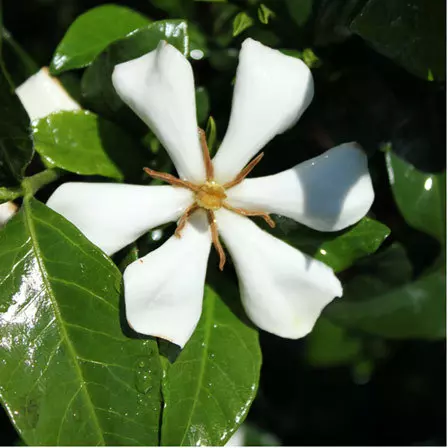
Grif’s Selects is a terrific gardenia that is hardier than most of the other jasmines. It offers six petaled radial, ivory blossoms in spring and summer. Its leaves are lustrous, glossy green and come with velvety foliage. The flower blooms to a reddish orange colour which looks very attractive. This jasmine is well known for its exceptional winter hardiness. It is best grown in organically rich soil with proper water and feeding.
13. Gardenia Jasminoides ‘Miami Supreme:
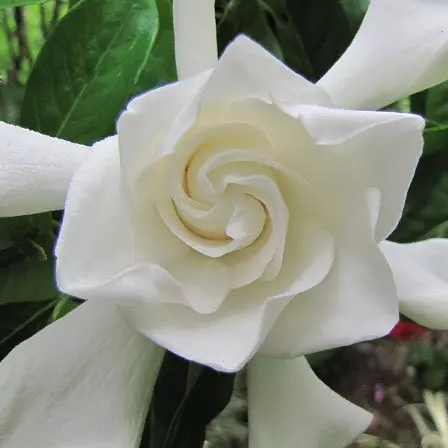
Miami Supreme gardenia is an irresistible large white fragrant flower which blooms spastically throughout the year. It has glossy green leaves and dark foliage which looks very beautiful in contrast to its ivory blooms.
14. Gardenia Jasminoides Michael:
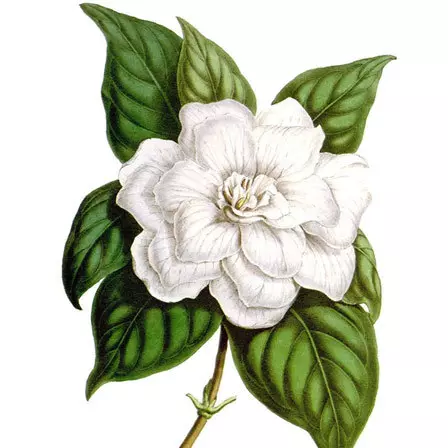
Michael is another hardy variety of jasmine. It blooms yearly in mid-summer in alkaline or loamy soil. Its leaves are marbled in cream and green colour and are quite long and slender. It is a low maintenance jasmine which needs regular watering. Like other jasmines, this one also emits a nice and pleasant fragrance
15. Gardenia Jasminoides Glazerii:
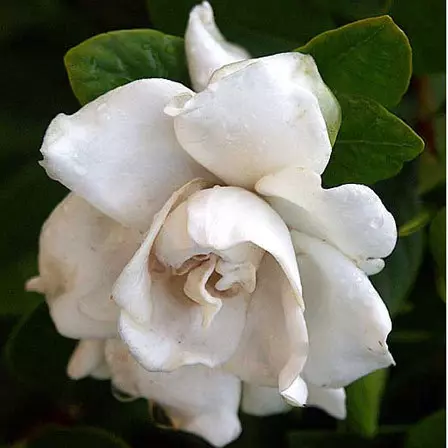
Glazerii features showy white blooms with bright green foliage. Its plant has shiny emerald leaves and grows up to a height of 8 feet and 6 feet in width. Glazerii is considered one of the most favorite plants used in flower gardens. It thrives best in moist acidic soil with good drainage and in partial shade.
16. Gardenia Jasminoides Mystery:
Mystery is a large bright flower. The base of the flower remains a colorful red and yellow, even after the petals drop, thus creating a pleasant sight during fall and winter. Its glossy, green compact foliage will make the flower an eye catcher in both gardens and containers. Regular mulching is required to protect it from whiteflies. Plant this flower in a proper area where its fragrance can be enjoyed.
17. Gardenia Jasminoides Shooting Star:
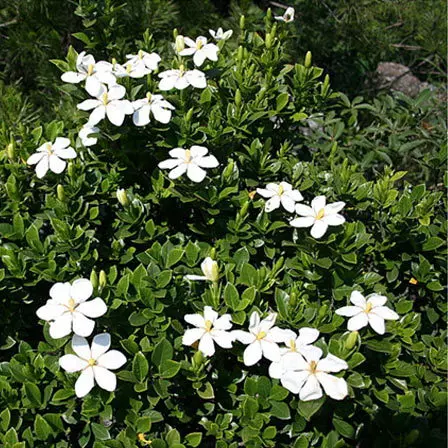
Shooting star is a single, 6 petaled Jasmine with large leaves. Shooting star is more upright than other single varieties of jasmine. This remarkably fragrant flower will make an excellent show in your garden or container. The flower requires maintenance only during the winter season.
18. Gardenia Jasminoides Variegata:
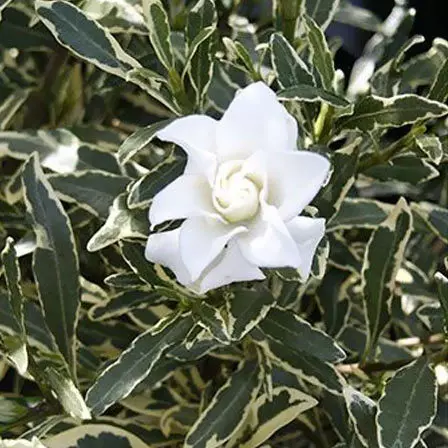
Variegata is a vigorous growing vine which grows yearly from spring through summer. It has glossy white, pale yellow and dark green leaves with striking white double bloom flowers. Its cream and white foliage makes this jasmine a masterpiece creation. It has a nice rich fragrance which fills the entire place with its scent. Variegata is considered as the best cultivated jasmine due to its vigor and beauty. Its ivory flowers also exude oil which is used in spas and parlors.
19. Gardenia Jasminoides Veitchii:
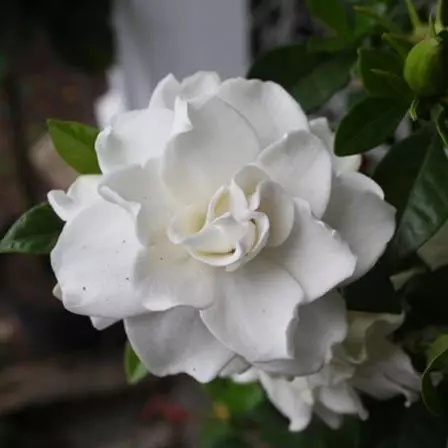
Veitchii is highly prized for its amazing looks and sweet fragrance. Its shrub bears white fragrant flowers with glossy pointed leaves which remain dark green throughout the winters. This jasmine is excellent for cutting. It is a low maintenance shrub which only requires regular pruning to avoid spoilage. It regularly attracts bees and butterflies.
20. Gardenia Jasminoides White Gem:
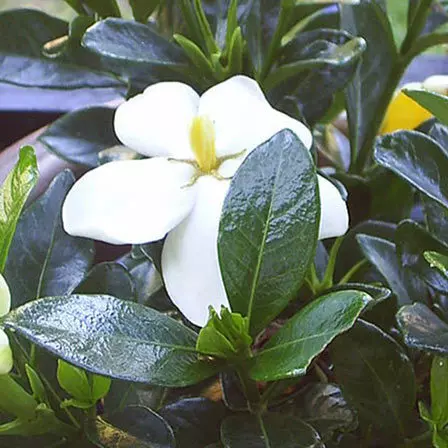
White Gem is a wonderfully fragrant flower of dwarf stature. It is a superb evergreen shrub for warm climates. Its shrub produces many single, white, waxy flowers with six whorled petals that barely touch each other. Compared to other jasmines, White Gem emits a light fragrance. It requires warm conditions, rich alkaline soil and regular watering.
21. Jasminum Mesnyi:
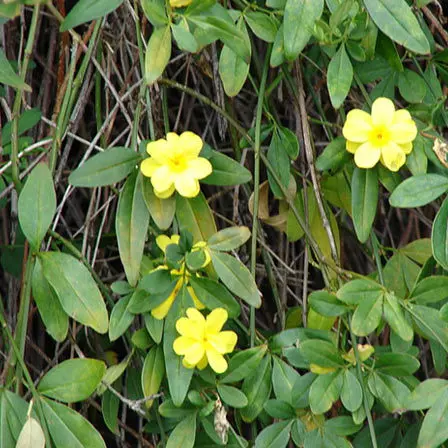
Mesnyi is a primrose jasmine which grows in a large mound. It is a semi double, funnel shaped yellow jasmine that is also known as the Chinese jasmine. Its stems are arched and cascade like a fountain. The stem is square in section and becomes woody with age. Its oblong shaped leaves are bright green in colour and are held in groups of pointed leaflets. This jasmine is quite sensitive to cold. It can take a few degrees of frost but cannot tolerate prolong freezing temperature. The flower is fragrant and blooms sporadically the rest of the year.
22. Jasminum Nudiflorum:
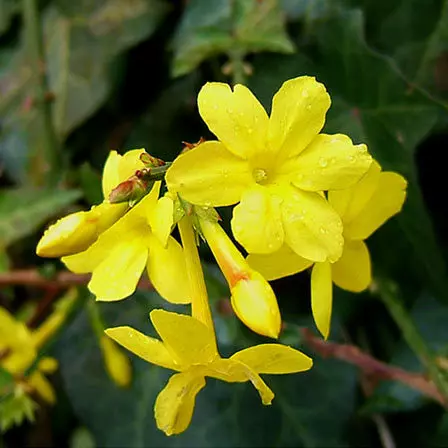
The shrub bearing this jasmine grows up to 3 meters tall and wide with arching green shoots. Its dark green leaves are divided into 3 oval-oblong leaflets which are 3 cm long. The shrub produces numerous solitary bright yellow, funnel shaped flowers on leaf axils which appear before the leaves. Unlike other jasmines it has a very mild fragrance. It grows best in rich, well drained soil and proper sunlight.
23. Jasminum X Stephanense:
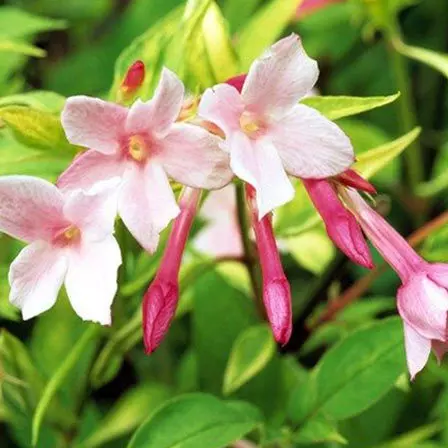
This unique pink jasmine hails from Southwestern China and is a hybrid between Chinese species J. beesianum and J. officinale. Its woody vine is covered with numerous small, pink tubular flowers. Its long, green stems bear oval shaped green and cream foliage, which makes the sight of the flowers even more beautiful. The flower is not ornamentally significant and is perfect as a cut flower. This flower has also been rewarded with the RHS award of Garden Merit.
24. Plumeria Rubra:
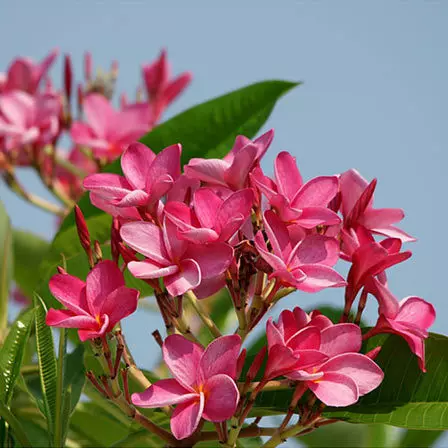
Plumeria rubra is originally native to Mexico, Central America, Colombia and Venezuela. Its branches are thick and fleshy but tend to break in high winds. Its leaves are large and leathery. The flower mostly appears before the leaves in the summer through autumn. It is a funnel shaped, large flower with lobes like petals overlapping each other. It is a waxy, delightfully scented flower with a yellow center. It needs a well-drained rich soil and regular watering.
 Trivia
Trivia25. Jasminum Elongatum:
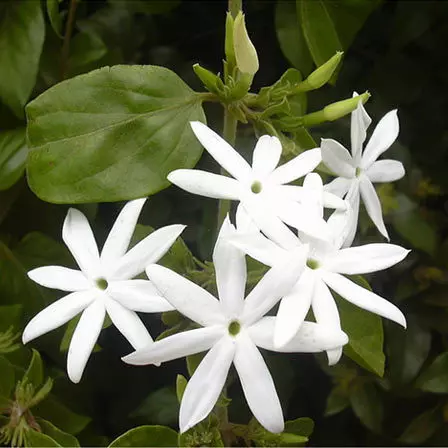
Elongatum is considered as a rare jasmine for its beautiful colour. It is a beautiful snow white coloured flower with pink on the underside of the petals. 6 to 9 narrow petals occur on each flower making it look like an angelic star. It has ear like leaves and glossy foliage. It is surprisingly a scentless variety of jasmine.
 Quick Tip
Quick TipThere are other varieties of jasmine as well like Chilean Nightshade, Grand Duke, Maid of Orleans, Angel Wing, Wild jasmine, Royal jasmine, Spanish jasmine, Italian jasmine, Persian jasmine, and Madagascar jasmine that are absolutely fantastic and native to only certain parts of the world.
The list of beautiful flowers is incomplete without mentioning the name of the jasmine flowers. Now, you have the whole list at your fingertips.
If you are enchanted by the beauty of these flowers and thinking of adding these delicate blooms to adorn your garden space, dive into the next section to know how to go about it and take good care of these flowers.
How To Care For Jasmine Plants
Jasmine flowers can be grown in gardens, containers, or as houseplants. Here are some tips that help you take the proper care of jasmine plants:
- Plant it in an organically rich, loamy soil that drains well.
- Water jasmine flowers in the garden once a week and the potted ones 2-3 times a week. Let the soil dry in between watering days. Adjust the frequency based on the weather conditions.
- Place jasmine plants in a location that receives good sunlight for at least 6 hours a day.
- If required, add fertilizer to the plant during the spring season.
- Provide support and shelter for the Jasmine vines so they can grow over.
Infographic: Jasmine Flowers: 10 Incredible Varieties To Add To Your Garden
Jasmine flowers have captured our hearts for centuries. Their beauty and fragrance can only be seen and felt. From Madagascar to Japan, each of these blooms boasts a one-of-a-kind appearance and fragrance that will make a perfect addition to your garden. In the following infographic, we have listed 10 unique varieties of these stunning flowers from different parts of the world. Check it out!

Illustration: StyleCraze Design Team
Jasmine is a much-loved flower that belongs to the family of Oleaceae. Several varieties of jasmine are found across the globe and are considered sacred in India due to their spiritual significance. The flower signifies different things in different parts of the world, like divine hope, love, attachment, modesty, and sensuality. The list here gives a detailed introduction of the different types of jasmines seen across the globe. Unlike the commonly found white jasmines, there are also jasmines with different colors. You may find more information on jasmine in this article.
Illustration: Different Types of Jasmine Flowers Across The World
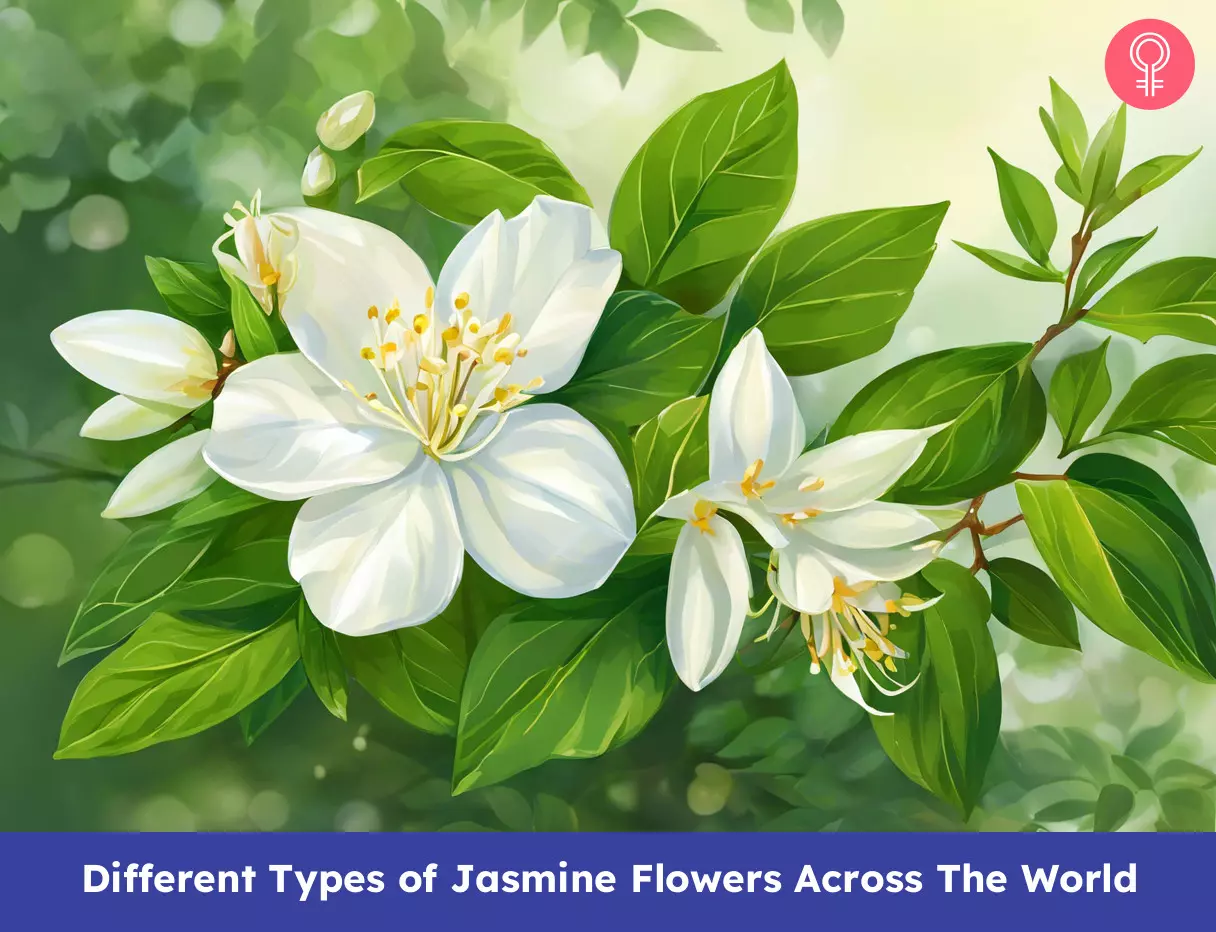
Image: Stable Diffusion/StyleCraze Design Team
Frequently Asked Questions
Which jasmine is the most fragrant?
Common jasmine, also known as the poet’s jasmine, is the most fragrant type of jasmine.
What is the difference between jasmine and star jasmine?
Jasmine has yellowish-white flowers and green leaves that are smaller than that of star jasmine.
Which jasmine is not a climber?
Winter jasmine is not a climber. This jasmine variety has bright-yellow flowers on olive-green stems.
What is the difference between jasmine and jasmine sambac?
The flowers of jasmine sambac, also known as Arabian jasmine or Indian jasmine, are waxy, while jasmines are sometimes tinged with pink. In addition to the aesthetic beauty, the benefits of Arabian jasmine are also well-recognized and are considered more tenacious than jasmine.
Immerse yourself in the captivating world of jasmine with this video showcasing 7 stunning varieties. Check out this video to explore the beauty and diversity of this beloved flower.
Read full bio of Ramya Karamsetti
Read full bio of Madhumati Chowdhury



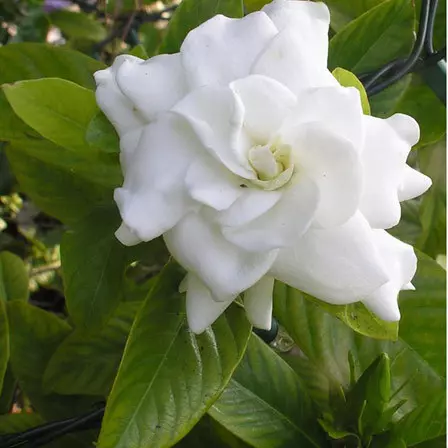
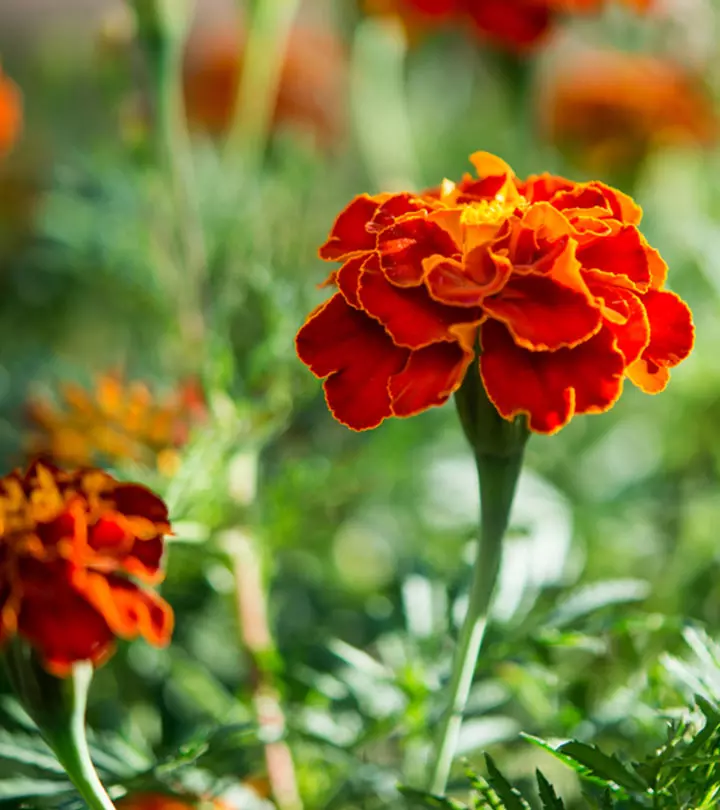
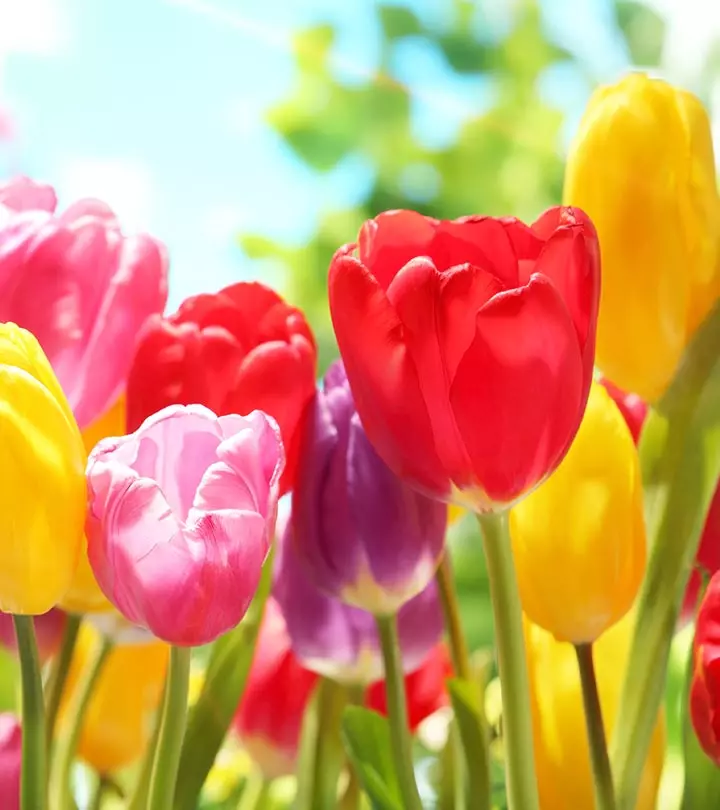
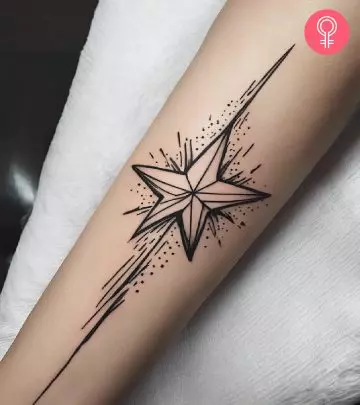
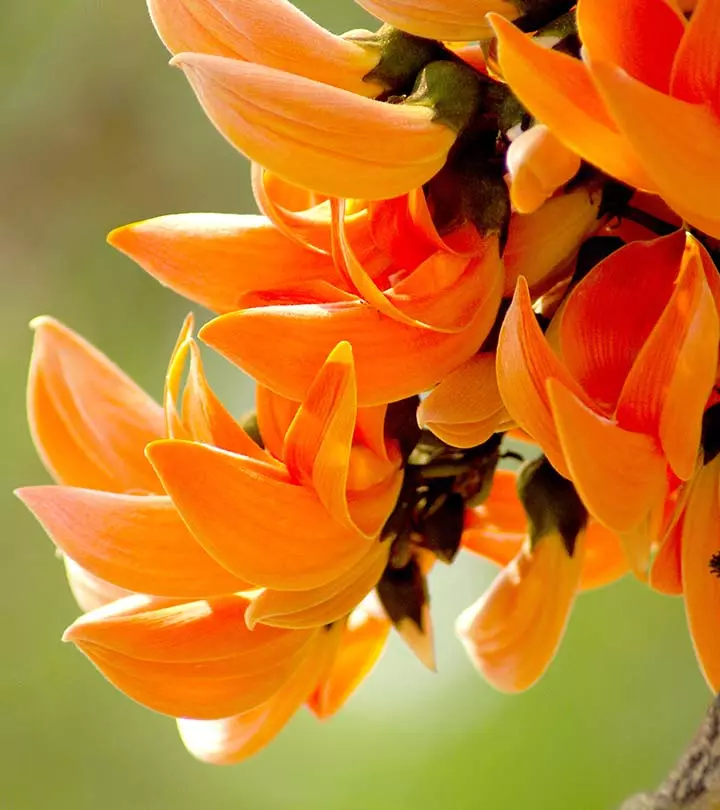
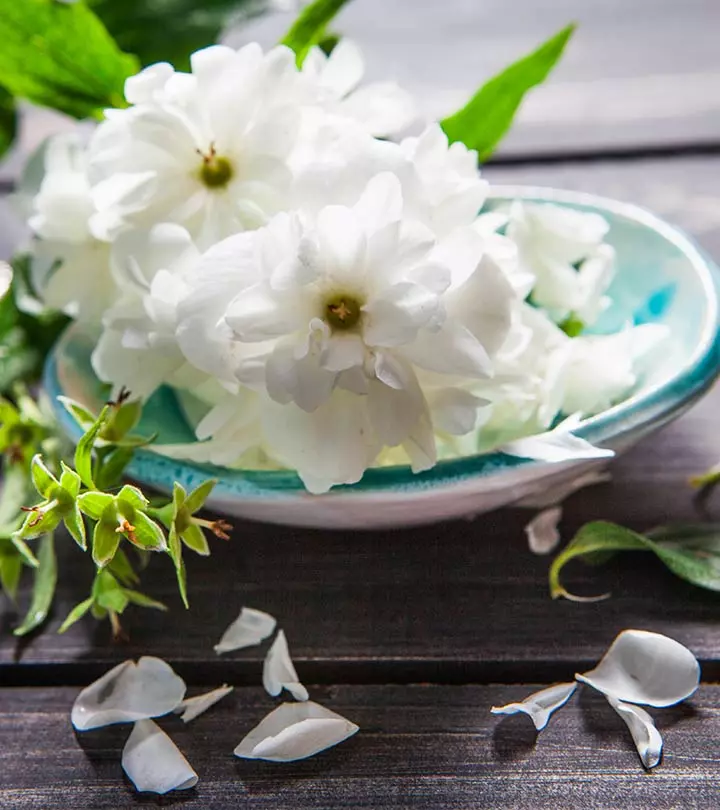
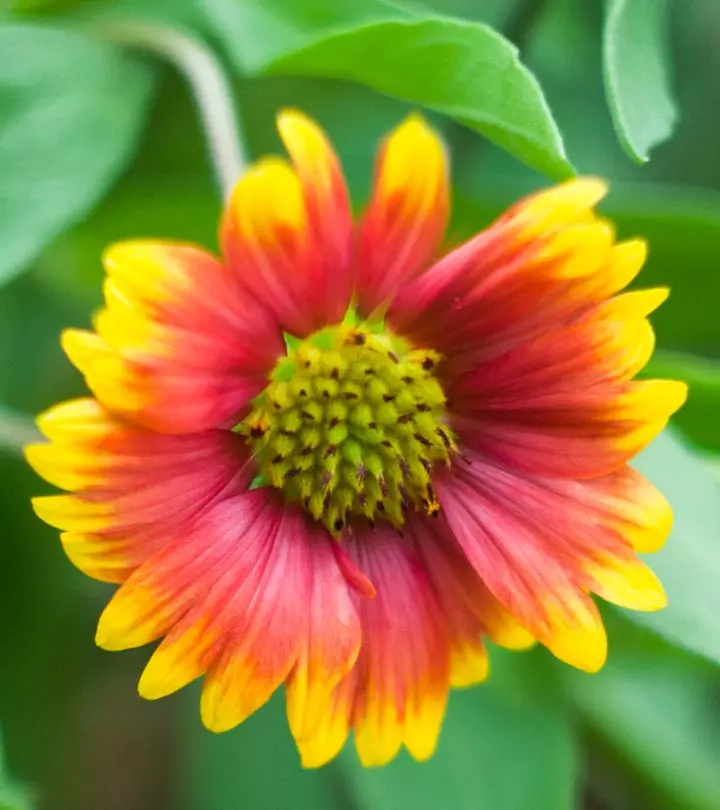
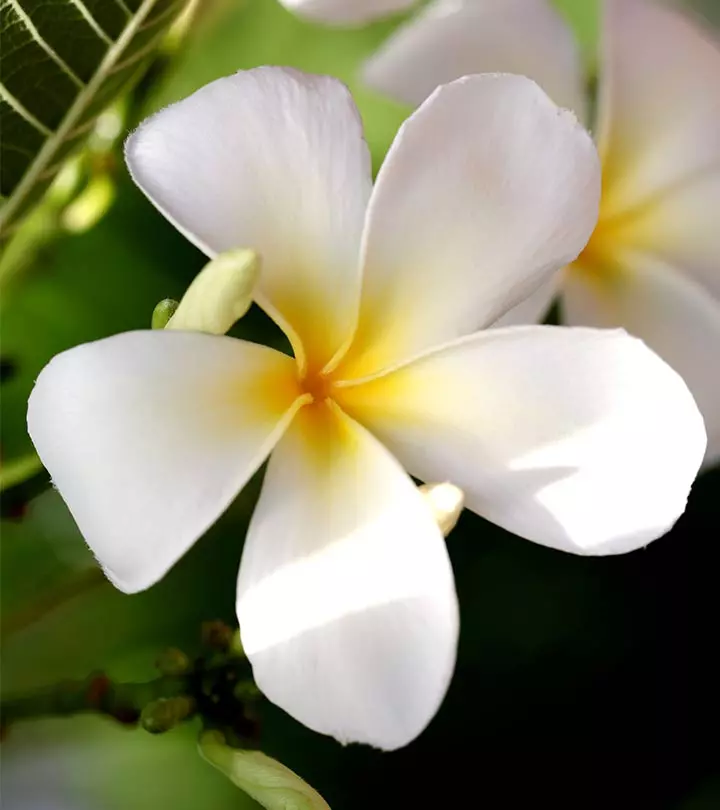
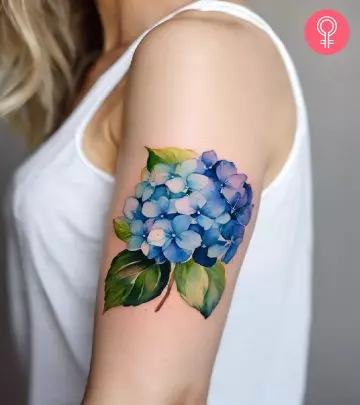
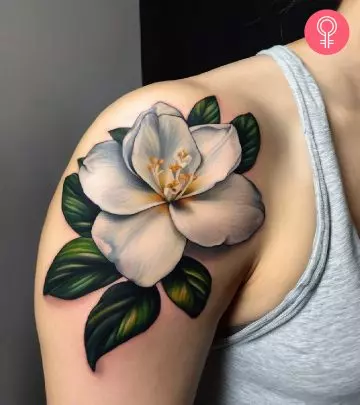
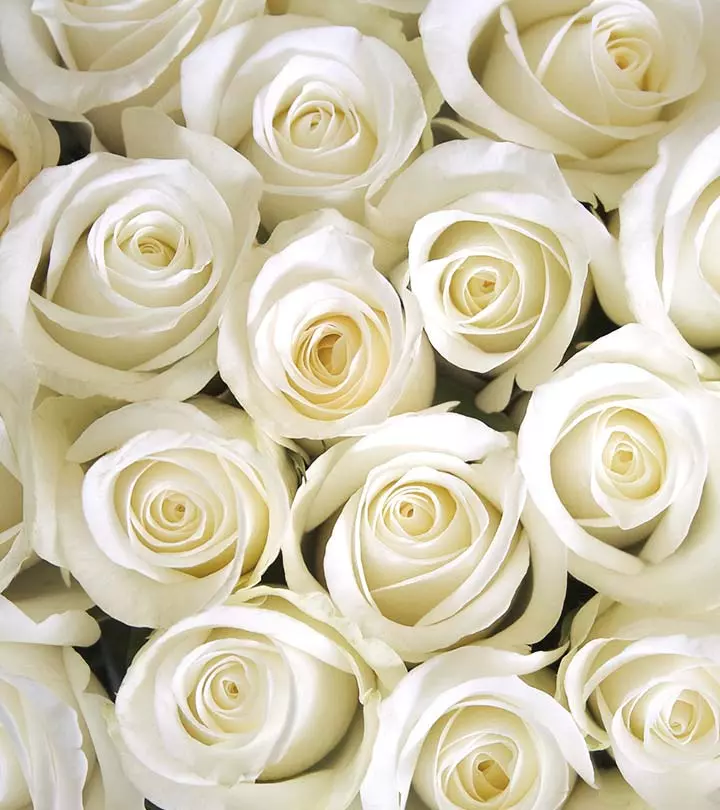
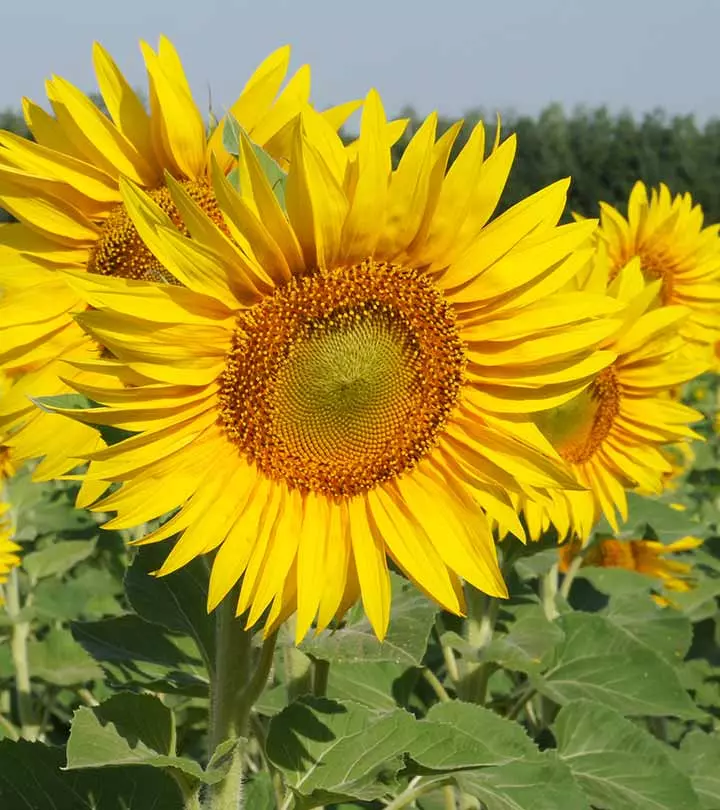
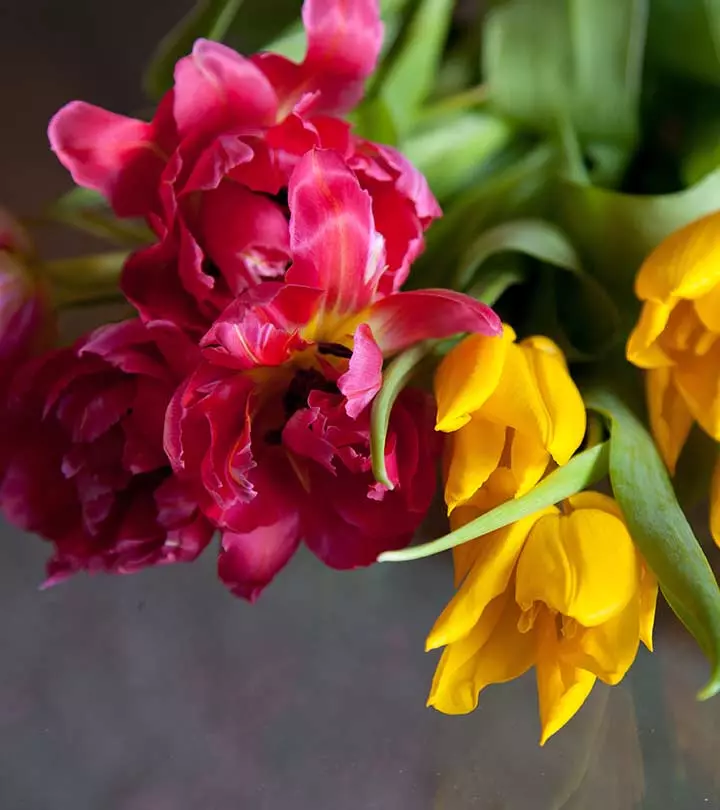
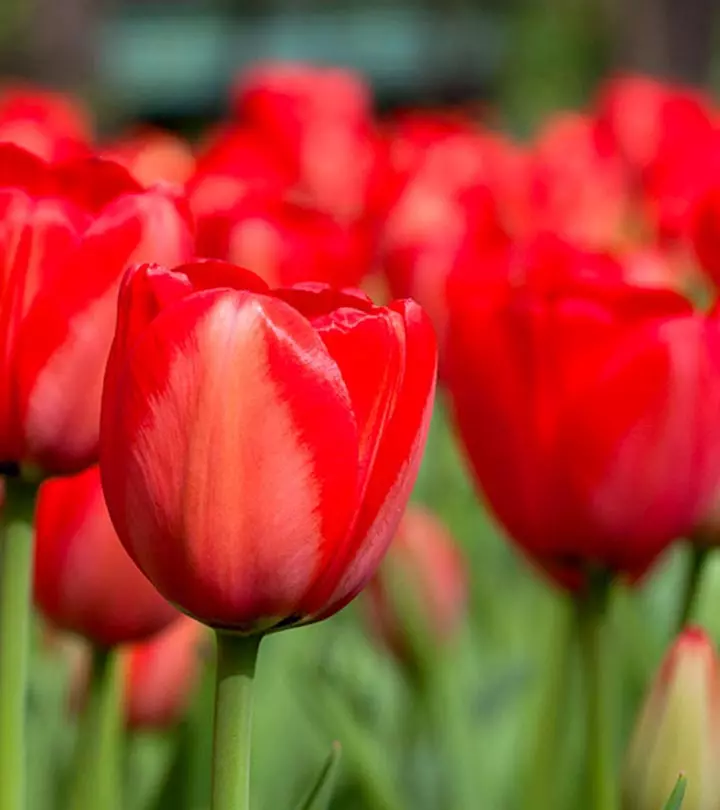
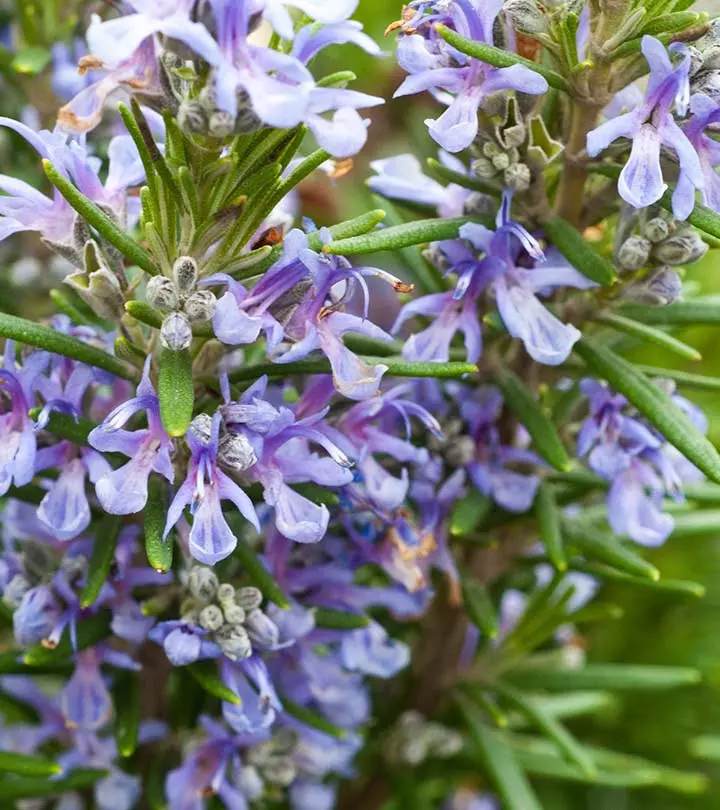
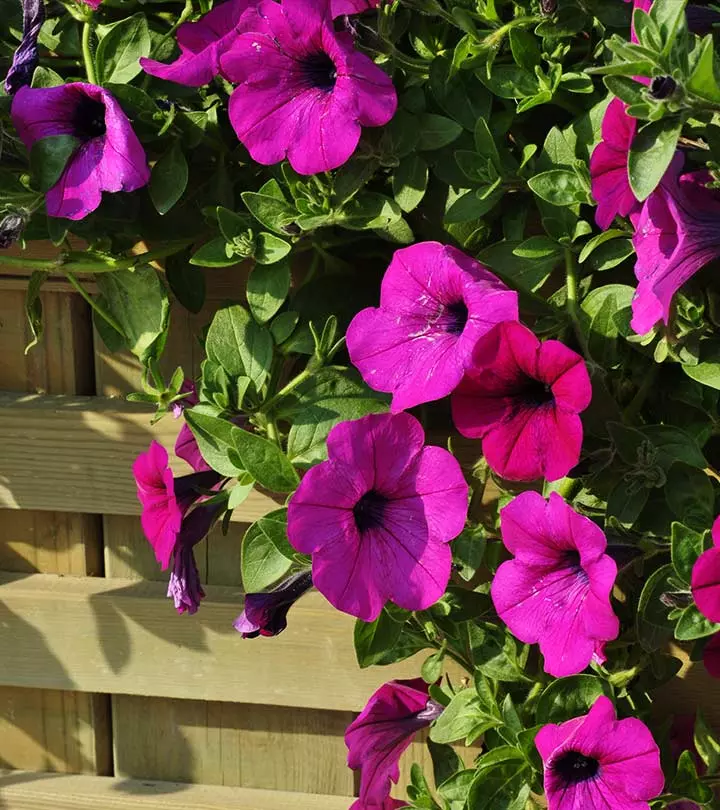
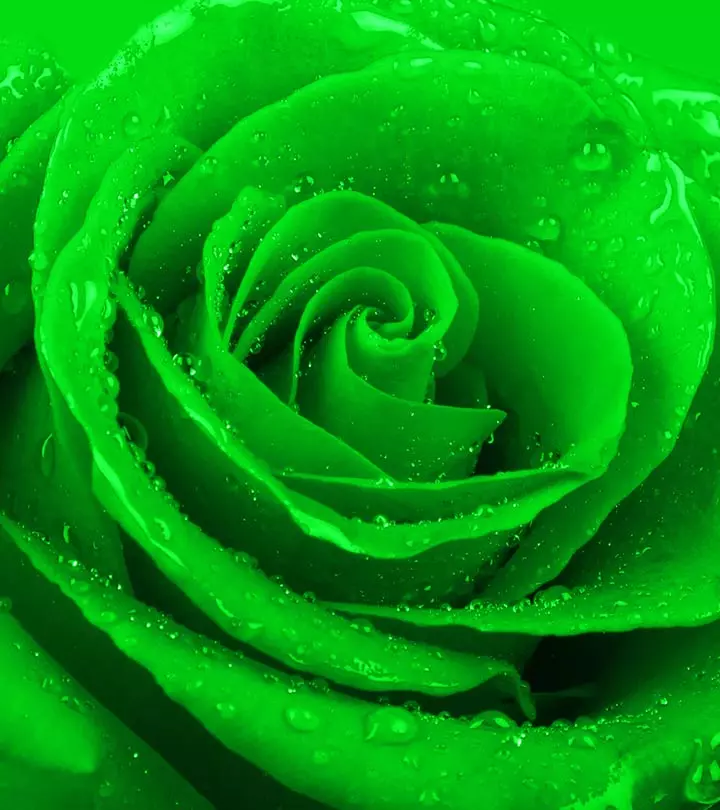
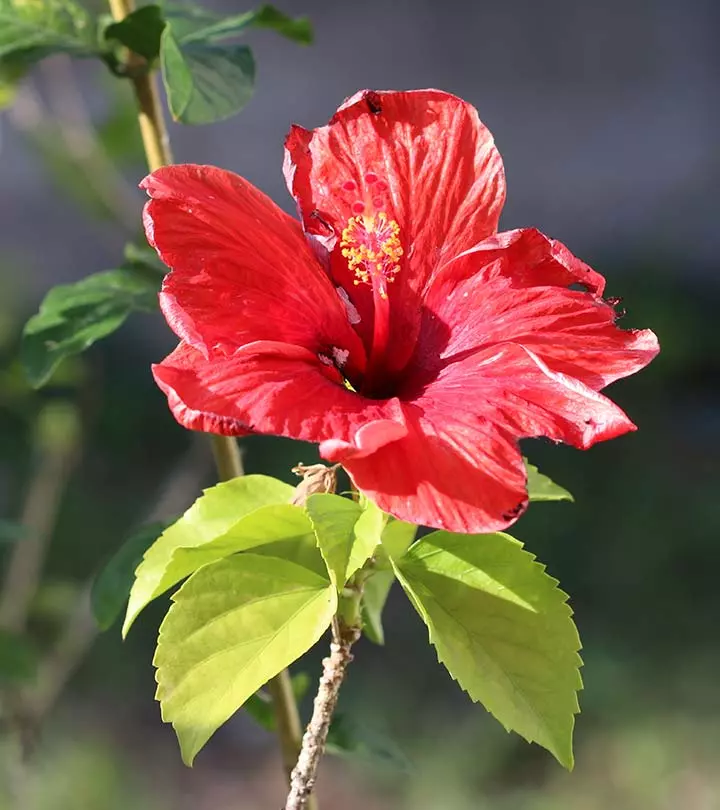

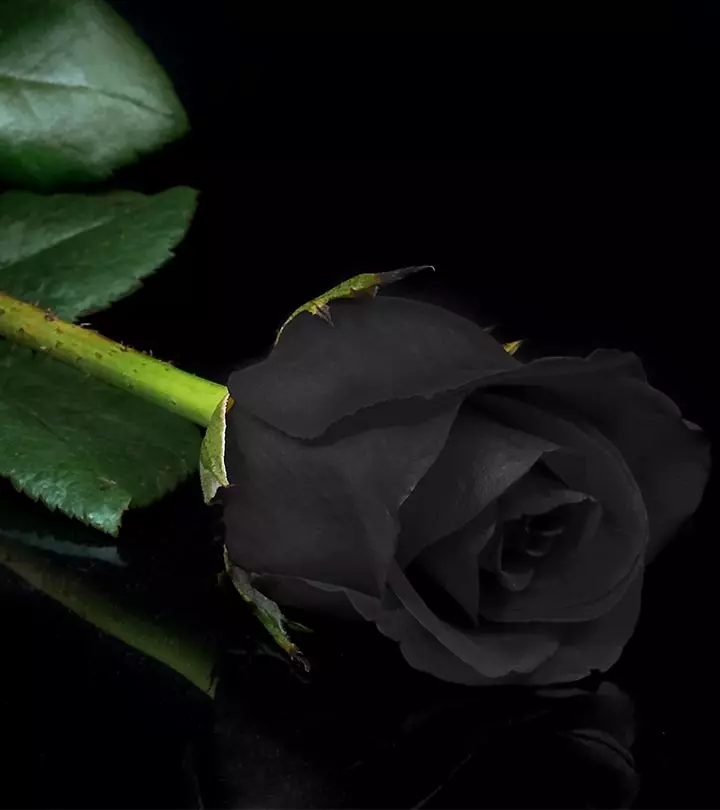
Community Experiences
Join the conversation and become a part of our empowering community! Share your stories, experiences, and insights to connect with other beauty, lifestyle, and health enthusiasts.